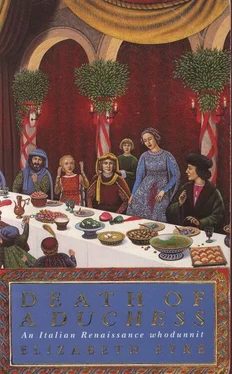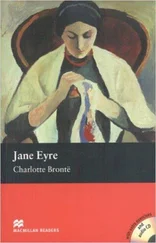Elizabeth Eyre - Death of a Duchess
Здесь есть возможность читать онлайн «Elizabeth Eyre - Death of a Duchess» весь текст электронной книги совершенно бесплатно (целиком полную версию без сокращений). В некоторых случаях можно слушать аудио, скачать через торрент в формате fb2 и присутствует краткое содержание. Год выпуска: 0101, Жанр: Исторический детектив, на английском языке. Описание произведения, (предисловие) а так же отзывы посетителей доступны на портале библиотеки ЛибКат.
- Название:Death of a Duchess
- Автор:
- Жанр:
- Год:0101
- ISBN:нет данных
- Рейтинг книги:5 / 5. Голосов: 1
-
Избранное:Добавить в избранное
- Отзывы:
-
Ваша оценка:
- 100
- 1
- 2
- 3
- 4
- 5
Death of a Duchess: краткое содержание, описание и аннотация
Предлагаем к чтению аннотацию, описание, краткое содержание или предисловие (зависит от того, что написал сам автор книги «Death of a Duchess»). Если вы не нашли необходимую информацию о книге — напишите в комментариях, мы постараемся отыскать её.
Death of a Duchess — читать онлайн бесплатно полную книгу (весь текст) целиком
Ниже представлен текст книги, разбитый по страницам. Система сохранения места последней прочитанной страницы, позволяет с удобством читать онлайн бесплатно книгу «Death of a Duchess», без необходимости каждый раз заново искать на чём Вы остановились. Поставьте закладку, и сможете в любой момент перейти на страницу, на которой закончили чтение.
Интервал:
Закладка:
As the Duke seemed about to speak, a figure detached itself from a small group and approached to speak in the Duke’s ear. Benno identified him, the Duke’s bastard half-brother the Lord Paolo, much loved at Court as a peacemaker and in the city as a giver of charity.
The Duke’s brother stepped back, the Duke raised a hand and spoke. ‘We will hear the Lords di Torre and Bandini in private.’
Benno shared the feeling of acute disappointment obvious among the withdrawing courtiers. Unlike them, however, he had no intention of leaving; he had a strong confidence born of experience that having made himself invisible he would not be seen. Indeed, two ladies, discontentedly murmuring to each other as they passed, brushed his face with their gauzy head-veils without seeing him in the pillar’s dark embrasure.
Finally, all had left except the Duke’s brother, a man with a clerk’s face Benno supposed to be the Duke’s secretary, the enemy lords, and Sigismondo. Pages and guards retired, closing the doors. Benno, for the moment holding his breath, had a strong and curious feeling that Sigismondo, though he had not turned his head towards him at all, knew that he was there.
‘My lords.’ Formally, the Duke bent his head to both; both bowed to him. Jacopo, deprived of supporters, looked oddly frail, but his energy returned in a rush when the Duke turned to him and said only ‘Your daughter-’
‘ Stolen! I accuse Ugo Bandini! There stands the man who has snatched my daughter from me! I demand justice from my Duke!’
The Duke, who could scarcely be accustomed to interruption, frowned. His tone sharpened. ‘There are questions to be put to you, di Torre; why, if your daughter was snatched from her chamber, did she have time to dress and to take with her the slave girl and the dog?’
Di Torre started an answer, failed in it and began a protest, stopped, and glared at Sigismondo.
‘You told our agent that her abductors must have come over the roof, yet there was no sign of disturbance, no tiles cracked, no plant broken. Nor did any dogs bark, so the men you say came either were no strangers to the household or they never entered.’
Protest bubbled now on Jacopo’s lips but the Duke went relentlessly on, his voice ringing harshly in the room’s emptiness. ‘You yourself, di Torre, arranged for your daughter to go. You sought to disobey our decree that she marry Leandro Bandini. You sought to deceive us . And you have been terribly repaid.’
He nodded to Sigismondo, who went out through the gold-hung doorway and reappeared bearing a blanket-wrapped form. At the foot of the dais he laid down and pulled the blanket away. The white-clad body with its swathed head rolled free, a hand hitting the floor, and the swathing fell partly aside disclosing a burnt cheek and ear.
Sigismondo had let go the blanket and moved straight to di Torre so that he was behind him, catching him as he dropped. The Lord Paolo was just as quick, hurrying to a side table out of sight behind the dais curtains, and returning with a cup of wine. The clerk, on the Duke’s orders, laid the blanket over the girl’s body once more, turning his face from sight.
Di Torre gasped and groaned, drank wine, and was helped upright. Lord Paolo was the only one showing concern. Bandini evinced a most dislikeable righteous distaste. The Duke looked as merciless as an animal before the jump that sets its teeth in its victim’s throat.
‘That is not your daughter, di Torre. It was her slave girl who, either in fear or in complicity, put on her clothes.’
Jacopo was still working on some form of reply when the Duke turned his blue stare on Bandini. ‘And you, my lord. To maintain the feud between your two families, the feud that threatens our state, you have been ready to kill.’
Benno had once seen a man walk off the edge of mounting block expecting a stair; the same change happened now to Bandini’s face. ‘Your Grace, I swear-’
The Duke’s hand, flashing light from its rings, silenced him.
‘You took di Torre’s daughter from outside his house. There were signs of struggle in the road, our agent tells us, and blood upon the wall. You had her conveyed out of the city at dawn.’
The words gave Jacopo his strength if not his senses. His hand fell to his dagger and he began to draw it. Sigismondo’s hand clamped down and rammed the weapon back in its sheath before it had showed its steel in the Duke’s very presence. Ignoring him, the Duke continued, ‘You had the slave girl murdered and left in the fire to destroy any chance of identifying her face; you wished it thought that the Lady Cosima di Torre had perished there, dishonoured.’
Bandini, flinging his arms wide, answered, ‘Not by me, your Grace. Not by me or my orders. I am innocent of all this. The Lord di Torre seeks as always to discredit me in your eyes, and by what a vile trick he has done it this time. What proof can there be that any of this is my doing? Robbers have taken the girl and murdered the maid.’
‘Why should robbers leave a valuable dress on the dead girl, a dress sewn with gold thread and ornamented with gems? Do robbers behave so?’ The Duke’s voice was cool now, as if he debated an ordinary question. ‘There was design to deceive.’
‘To put your Grace’s justice off their track, perhaps. Who can tell what may be in the minds of thieves? To honest men, the intentions of rogues are not to be fathomed.’ A raised arm jabbed a finger towards di Torre. ‘He has fastened this abduction upon me to deceive your Grace. He, he has had the poor girl slaughtered to further his deception.’
Jacopo turned on Sigismondo with sudden energy and scrabbled at the breast of his jerkin. ‘The cloth, man, the cloth!’ He was busy trying to undress Sigismondo, who looked down at his efforts with grave interest and then produced the rag of yellow and red from the pocket on his belt. Jacopo snatched it, but Sigismondo had swung it overhead from his grasp. Di Torre’s voice cried like a daw, ‘Your Grace! Tell his Grace-’
The Duke’s hand and glance silenced his tongue, his hands continued to make urging movements if to a dog. Sigismondo showed him the cloth. ‘Is this the one you mean, sir?’
‘Of course, of course it is.’
‘It is the piece found on the nail by the door? The door by which the Lady Cosima seems to have left your house?’
‘Yes, yes. See, that is the mark of the nail.’
Ugo Bandini watched with close-shut mouth and eyes of fury, a hound on a tight leash. Sigismondo approached the Duke, and, going down on one knee, owed him the cloth. ‘Your Grace will see here the pucker where the nail held the cloth.’ His deep voice might be that of a priest teaching. ‘The seam is well-stitched and close.’
‘We observe.’ The plural at this juncture might be supposed to mean not the Duke himself only but his brother too, who had come forward with quick interest.
Sigismondo stepped to a pillar near the dais, and his fingers found what he must have noted, a nail for hanging garlands. He fitted the cloth over this and, after a moment’s pause, gave it a sharp wrench. Returning, he held out the rag between his hands. The nail had dragged a hole in it, and every stitch in the seam was frayed.
Lord Paolo spoke. ‘Then this was not torn before? Surely, it could not have been manufactured to implicate…’ He drew back, averse to saying out loud what he thought; but his eyes went towards Bandini.
His distaste was magnified a thousandfold in the whole person of Ugo Bandini. He seemed to swell with indignation; but his outburst and di Torre’s violent denial rang together. They turned on each other, but discovered Sigismondo between them. This silenced them for the moment it took Lord Paolo to say, ‘If I may ask a question of your Grace’s agent?’
Читать дальшеИнтервал:
Закладка:
Похожие книги на «Death of a Duchess»
Представляем Вашему вниманию похожие книги на «Death of a Duchess» списком для выбора. Мы отобрали схожую по названию и смыслу литературу в надежде предоставить читателям больше вариантов отыскать новые, интересные, ещё непрочитанные произведения.
Обсуждение, отзывы о книге «Death of a Duchess» и просто собственные мнения читателей. Оставьте ваши комментарии, напишите, что Вы думаете о произведении, его смысле или главных героях. Укажите что конкретно понравилось, а что нет, и почему Вы так считаете.










